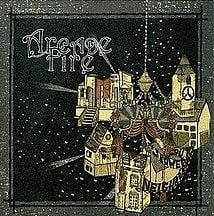Wasted Hours by Arcade Fire Lyrics Meaning – Unraveling the Poignant Reflections on Youth and Time
Lyrics
Spent the summers staring out the window
The wind it takes you where it wants to go
At first they built the road then they built the town
That’s why we’re still driving around and around
And all we see are kids in the buses longing to be free
Wasted hours before we knew
Where to go and what to do
Wasted hours that you make new
And turn into a life that we could live
Some cities make you lose your head
In this suburb stretched out thin and dead
What was that line you said?
Wishing you were anywhere but here
You watched the life you’re living disappear
and now I see, we’re still kids in the buses longing to be free
Wasted hours before we new
Where to go and what to do
Wasted hours that you make new
Turn into a life that we could live
Arcade Fire’s ‘Wasted Hours’, a track off their critically acclaimed album ‘The Suburbs’, engages with the bittersweet sentiments of retrospection and the ephemeral nature of time. The song interweaves the reckoning of youth’s fleeting moments with the existential journey of finding one’s place in the world.
With a penchant for crafting emotionally resonant narratives, the Canadian indie rock band explores the universal feelings of longing and the quest for meaningful existence against the backdrop of suburban ennui. Let’s dissect the layers of ‘Wasted Hours’ and uncover the rich tapestry woven by its seemingly simple verses.
The Nostalgic Echoes of ‘Wasted Hours’
At the heart of ‘Wasted Hours’ lies a profound sense of nostalgia—a longing for the seemingly inconsequential moments spent during youth, which in hindsight, occupy a poignant place in one’s memory. The lyrics allude to the endless summers of adolescence, a time marked by a sense of limitless possibilities and dreams yet to be tethered by reality’s constraints.
The repetitive nature of the song’s structure mirrors the cyclical essence of time in the suburbs, where the build of the road and the town symbolize a loop of continuity. Life appears to revolve in perpetual circles, with the younger generation riding the same buses, harbouring the same desires for freedom and escape their predecessors once held.
A Hidden Meaning Behind the Monotony of Suburban Life
‘Wasted Hours’ is not just a lament on lost time; it’s a contemplation on the landscape of the suburbs as both a physical and metaphorical space. Suburbs, often critiqued for their uniformity and lack of culture, are depicted as places where individual thoughts and aspirations are diluted in the sprawl of sameness.
Arcade Fire challenges the listener to find meaning and purpose within these constraints. The song accentuates the struggle between the comfort of the known and the ache to break free, to make wasted hours new and carve out a life worth living amidst the expanse of mundanity.
Turning ‘Wasted Hours’ into a Life Worth Living
The transformative message of the song suggests that the very hours thought to be wasted hold the potential to be reclaimed. As the band calls out for the listener to turn these hours into a life worth living, they emphasize the personal responsibility one has in shaping their own narrative.
By making new the wasted hours, the song proposes a form of redemption or rebirth through conscious decision-making. It is a charge to reevaluate the so-called trivial moments, infuse them with intention, and thereby change the course of one’s life.
Memorable Lines that Capture the Collective Youthful Desire
Arcade Fire’s lyrical prowess shines in encapsulating a sentiment shared by many young individuals. The words ‘Still kids in the buses longing to be free’ resonate as a powerful motif throughout the song. It captures not only the universal journey of adolescence but also the relentless pursuit for a life of meaning beyond societal constraints.
The song connects listeners back to their own experiences of youthful yearning, reinforcing the idea that these internal struggles are intimately familiar, yet deeply personal in their manifestation. It is in these lyrics that one contemplates the essence of freedom, both as an individual and as part of the generational continuum.
Psychogeography and the Impact of Physical Space on the Soul
Arcade Fire delves into psychogeography—the impact of the geographical environment on the emotions and behavior of individuals—encouraging a reflection on how one’s surroundings shape their inner life. ‘Some cities make you lose your head’ hints at the disorienting effect that certain places can have on one’s identity, causing a disconnect between the self and the environment.
By juxtaposing the suburbs against the disarray of cities, the song juxtaposes the external quest for space with the internal search for self. It challenges the listener to consider how much of their life is dictated by the spaces they inhabit and how much they can take control of, transforming static hours into dynamic, lived experiences.








